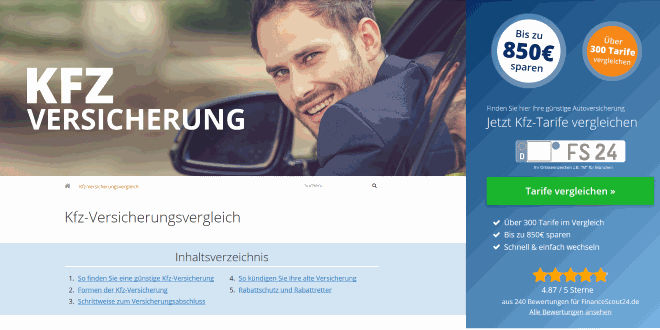Live in the Netherlands and speak English? Explore truck driving work opportunities near you.
If you're based in the Netherlands and speak English, truck driving work may offer opportunities that match your qualifications and availability. From local routes to regional deliveries, roles typically involve transporting goods, maintaining schedules, and working with logistics teams. Learn what kind of licenses are usually required and what employers commonly expect in this field.
What types of truck driving roles are available in the Netherlands?
The Netherlands offers diverse truck driving opportunities across multiple sectors. Local delivery drivers handle short-distance routes within cities and surrounding areas, typically driving smaller trucks for retail, food service, or package delivery companies. Regional transport drivers operate medium to heavy trucks on routes connecting Dutch cities or neighboring countries like Germany and Belgium. Long-haul international drivers manage cross-border freight transportation throughout Europe, often requiring extended trips and specialized knowledge of international regulations. Container transport represents another significant sector, with drivers moving goods between ports like Rotterdam and distribution centers. Specialized transport roles include hazardous materials, refrigerated goods, and oversized cargo, each requiring additional certifications and offering higher compensation.
Which licenses and certifications are needed to qualify?
To work as a truck driver in the Netherlands, you’ll need specific licenses and certifications depending on the vehicle type and cargo. A standard European Category C license allows you to drive trucks weighing over 3,500 kg, while a Category C+E license permits you to operate trucks with trailers. The Certificate of Professional Competence (CPC) is mandatory for commercial drivers, requiring 35 hours of periodic training every five years. For hazardous materials transport, you’ll need an ADR certificate, while drivers handling livestock or food products may require additional hygiene certifications. EU citizens can typically transfer their existing licenses, while non-EU residents must meet specific requirements and may need to obtain Dutch licenses. Medical examinations and background checks are standard requirements for most employers.
How do common schedules and delivery routes work?
Truck driving schedules in the Netherlands vary significantly based on the role type and employer. Local delivery drivers often work standard daytime hours, typically starting early morning around 6 AM and finishing by late afternoon. Regional drivers may work longer shifts but usually return home daily or within a few days. International long-haul drivers can expect extended periods away from home, sometimes up to several weeks, but often receive longer rest periods between trips. Routes commonly include major corridors connecting Amsterdam, Rotterdam, The Hague, and Utrecht, as well as cross-border routes to Germany, Belgium, and France. Many drivers appreciate the Netherlands’ excellent road infrastructure and relatively short distances between major destinations, making navigation straightforward even for newcomers to the region.
How do English-speaking drivers fit into logistics operations?
English-speaking drivers are particularly valuable in Dutch logistics operations due to the international nature of the industry. Many logistics companies serve multinational clients and handle cross-border shipments where English communication is essential. Major international freight companies, port operations in Rotterdam and Amsterdam, and companies serving the flower export industry frequently prefer English-speaking staff. Your English skills can be especially advantageous when dealing with international customs procedures, communicating with foreign clients, or working with global logistics software systems. Many Dutch logistics managers also speak English fluently, making workplace integration smoother. However, basic Dutch language skills can enhance your opportunities and help with local delivery interactions, though they’re not always mandatory for international routes.
What do employers look for in reliable transport workers?
Dutch employers prioritize several key qualities when hiring truck drivers. Reliability and punctuality are fundamental, as delivery schedules directly impact customer satisfaction and supply chain efficiency. A clean driving record demonstrates safety consciousness and reduces insurance liabilities. Flexibility with schedules and routes shows adaptability to changing business needs. Technical competence includes proper vehicle inspection procedures, basic maintenance knowledge, and familiarity with digital logistics systems. Communication skills are crucial for coordinating with dispatchers, customers, and other drivers. Many employers also value drivers who can work independently while following company protocols. Experience with specific cargo types or routes can provide competitive advantages, and willingness to undergo additional training demonstrates commitment to professional development.
| Company Type | Average Monthly Salary | Benefits Package |
|---|---|---|
| Local Delivery | €2,800-€3,200 | Standard health insurance, paid vacation |
| Regional Transport | €3,200-€3,800 | Health insurance, meal allowances, overtime pay |
| International Long-haul | €3,500-€4,500 | Extended benefits, travel allowances, bonus structure |
Prices, rates, or cost estimates mentioned in this article are based on the latest available information but may change over time. Independent research is advised before making financial decisions.
Conclusion
The Netherlands presents excellent opportunities for English-speaking truck drivers, with diverse roles spanning local delivery to international transport. Success in this field depends on obtaining proper licenses, understanding route expectations, and demonstrating the reliability that Dutch employers value. Your English language skills can be a significant asset in this internationally-focused industry, particularly for cross-border operations and multinational logistics companies. Whether you’re seeking local work with predictable schedules or international routes with higher earning potential, the Dutch trucking industry offers pathways that can match various lifestyle preferences and career goals.





